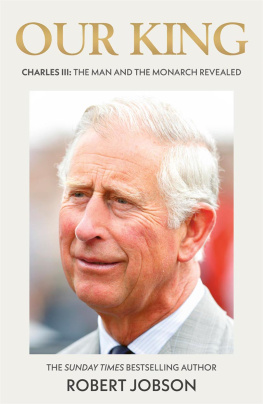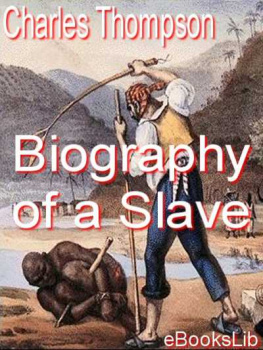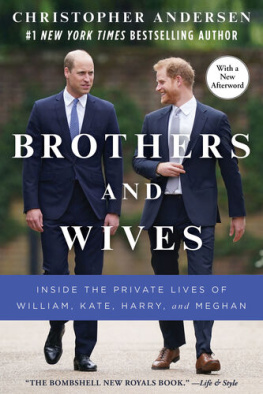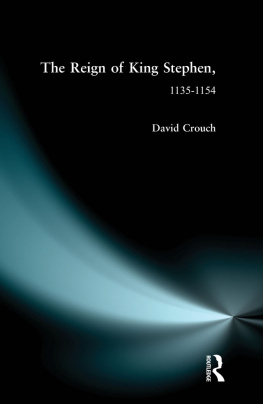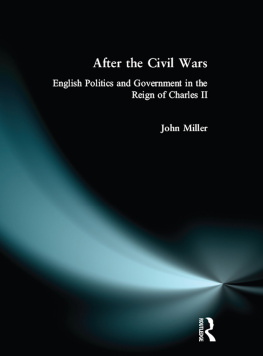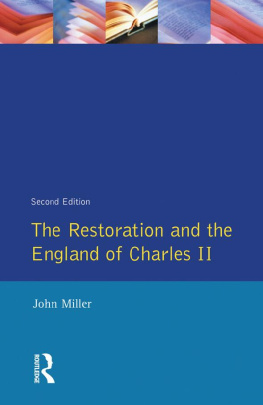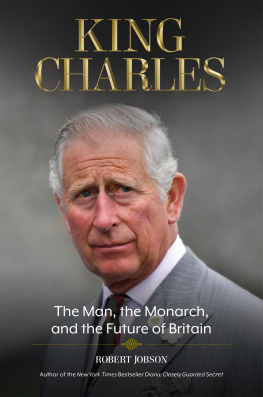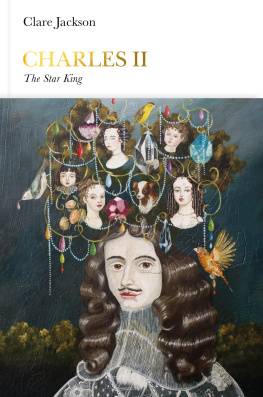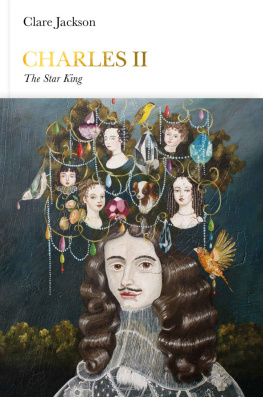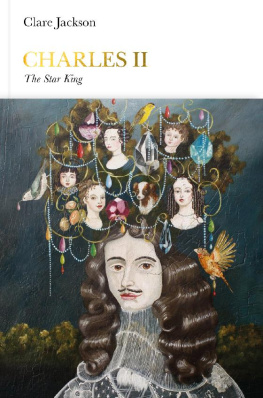CHARLES I
The Personal Monarch
Second Edition
'It is hard to imagine a more balanced, fairer study than Charles Carlton's Charles I: A Personal Monarch. Faultlessly documented, yet unfolding as a primarily human story, it reveals him in every aspect, as king, husband, father, devout churchman, neither tyrant nor saint, until he becomes wholly known and understandable to us.'
The Bookseller
'This is a splendid biography... Professor Carlton deserves congratulations on this outstanding and fascinating book on the last ruling king of England.'
Catholic Herald
'The author shows an unusual degree of insight into the King's character, and excels in relating cause and effect.'
Eastern Daily Press
'His grasp of the political context is firm and confident. He is extremely good on both the artistic and the political dimensions of the royal court'
The Scotsman
Charles Carlton's biography of the 'monarch of the Civil Wars' was praised for its distinctive psychological portrait of Charles I when it was first published in 1983. Challenging conventional interpretations of the king, as well as questioning orthodox historical assumptions concerning the origins and development of the Civil Wars, the book quickly established itself as the definitive biography.
In the eleven years since Charles I was published an immense amount of new material on the king and his reign have emerged and yet no new biography has been written. Professor Carlton's second edition includes a substantial new preface which takes account of the new work. Addressing and analysing the furious historiographical debates which have surrounded the period, Carlton offers a fresh and lucid perspective. He has also thoroughly updated the text of the first edition.
CHARLES I
The Personal Monarch
Second Edition
Charles Carlton
First published 1983
Second edition published 1995
by Routledge
2 Park Square, Milton Park, Abingdon, Oxon OX14 4RN
Simultaneously published in the USA and Canada
by Routledge
270 Madison Ave, New York NY 10016
Transferred to Digital Printing 2007
The moral right of the author has been asserted
1983, 1995 Charles Carlton
Phototypeset in Garamond by Intype, London
All rights reserved. No part of this book may be reprinted
or reproduced or utilised in any form or by any electronic,
mechanical, or other means, now known or hereafter
invented, including photocopying and recording, or in any
information storage or retrieval system, without permission
in writing from the publishers.
British Library Cataloguing in Publication Data
A catalogue record for this book is available from the British Library
Library of Congress Cataloging in Publication Data
A catalogue record for this book has been requested
ISBN 0-415-12141-8
0-415-12565-0 (pbk)
Publisher's Note
The publisher has gone to great lengths to ensure the quality of this
reprint but points out that some imperfections in the original
may be apparent
For Caroline
CONTENTS
ILLUSTRATIONS
Between pages 206 and 207
PREFACE
'That memorable scene'
The scene is so familiar that it runs the risk of becoming a cliche. That cold January afternoon in Whitehall, the black draped scaffold, the ring of soldiers, the short, dignified and frightened figure trying in vain to make himself heard as the raw east wind carried his words over the heads of the pikemen to be lost among the bare trees of StJames's Park. The axe swings, the hooded executioner holds up the head as that of a traitor, the crowd moans, surging forward to dip their handkerchieves in the martyr's blood, before the roundhead cavalry roughly cleared the street, leaving only Andrew Marvell's lines to haunt the memory:
That thence the Royal Actor born
The Tragic Scaffold might adorn...
He nothing common did or mean
Upon that memorable scene:
In several ways Charles's death was the climax of his life. In martyrdom he won by losing, resolving many of the tensions - which he called 'disturbances' - that beset him for most of his days. His death gave his life a tragic dignity. In dying he showed grandeur in place of meanness, resolve instead of vacillation, honesty where duplicity had often been the norm. The denouement of the final act, however, should not overshadow the rest of the play. In life, unlike the theatre, the finale is not known, the start and progress being barely comprehended. On one sense, our under standing of Charles's passage through life must inevitably be warped by our knowledge of the way he left it. Thus whilst a biography may provide the emotional satisfaction of describing the most important task that we all have to do - the living of a single life - it has the disquiet of a detective novel in which the last chapter has to be read first.
This book was started longer ago than I care to remember in that seminary of creative ideas, the British Museum's coffee room, with a discussion about who in early modern British history needed a fresh biography. I would like to think that I have tried to satisfy such a need. Although grounded on the king's letters, this book contains no new evidence from some remote muniment room or miscatalogued bundle. I did not expect to find any. On the other hand, it does try to place the king's life in the context of recent interpretations of the period, or rather the lack thereof, since the syntheses that stressed social change or radical religion no longer hold the sway they once enjoyed, being yet to be replaced. If this work substantiates the axiom that each generation reinterprets the past in the light of its own experience I make no apology: we have seen how fragile are the bonds that unite a kingdom, how a great nation can, almost without thinking, get caught up with an entanglement abroad that nigh destroys it at home, and how long standing flaws of character can, within a short time, cause an incumbent to lose the highest of offices.
In recent years theories about human behaviour have developed that may be of use to a biographer. Disraeli's advice to 'Read no history; nothing but biography, for that is life without theory' has always been impossible because no one can describe a life without making theoretical assumptions about human behaviour. The trouble with such explanations is that they are frequently naive; unbacked by empirical evidence or experimentation they often fail to take into account the complexities of the human psyche, with its various parts working consciously or unconsciously against each other.
On the other hand the applications of modern social science theories of human behaviour to biography lack neither their dangers nor critics. Psychoanalysis and psychology are essentially predictive methodologies. Thus the historian who applies them to the known outcomes of the past runs the risk of claiming the omnipotence of the punter who is allowed to place his bets after the race has been run. Inherent to this process is the danger of 'reductionism' - a form of psycho-biographical predestination as implacable as anything to come from Geneva.
Take, for instance, an incident Bishop Laud noted in his diary. In January 1623, twenty-six years and two days before he was executed, Charles was exceedingly merry at dinner, talking on a wide range of subjects, including the choice of a career. One thing he could never be, declared the 22-year old prince, was a lawyer, because 'I cannot defend a bad, nor yield a good cause.' Although uncannily prophetic Laud's story possesses an equally disturbing note of inevitability. While one may use it to explain Charles's later actions, it would be absurd to suggest that because Prince Charles announced that he could not compromise his principles, all of King Charles's parliaments had to end in confrontation, every concession he made had to be wrung from him like an impacted wisdom tooth, that he could never accept the constitutional monarchy of 1641, or that, after the civil war, at the bargaining table he could not grant the other side the gains they had won on the field of battle.


